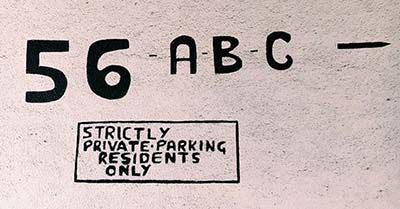Troublesome Uses of Adjectives as Adverbs
Email this page
We learn that adjectives modify nouns, subjects, and pronouns whereas adverbs modify verbs and adjectives; however, that does not always work like that in language. In some expressions, adjectives can sometimes be used instead of adverbs.
Such use of adjectives as adverbs are sometimes simply a matter of idiomatic use. Other times, adjectives have two forms.
Video Activity
Adjectives and Adverbs with Identical Form
Some adverbs are called flat adverbs, bar adverbs, or simple adverbs. They are identical to their related adjectives. You say something is fast and also something moves fast. You make a left turn or you turn left.
Adjectives and adverbs with identical forms
- My office is not far from here. (a long distance)
If you work hard, you will go far in this company. (do well)
This is far too expensive. (much)
- You have a fast car.
We have time. There's no need to drive so fast.
- This is a very straight road.
I drove straight home from work.
- My clothes were all askew after the party. (crooked; awry)
He looked at me askew for some reason. (disapprovingly)
- This meat is very tough. (not tender)
The mild-mannered manager knew how to talk tough when needed. (roughly)
- He is a low talker. (soft)
He talks very low. (softly)
- Something is awry.
My plans went awry.
Adjectives with Two Adverbial Forms
You can sell something cheap and you can sell something cheaply. You can also hold something dear or love someone dearly.
The adjectives in the above sentences have two adverbial forms: one is identical to the adjective, and the other takes the adverbial ending -ly.

Harry Cooke | Pexels
Note that the adverbs for some of these adjectives have slightly (sometimes very) different meanings.
Subtle differences in meaning
- The interview went fine. (well)
Cut the parsley finely. (in very small pieces or slices)
- Do you want to go first? (first in order or place)
Firstly, let me point out the problems. (in the first place, to start with)
- We ship your purchases direct from the factory. (without stopping anywhere)
I would like to talk to the manager directly. (without an intermediary)
- These players do not play fair. (honestly)
I was fairly late to the meeting. (somewhat)
- Wild animals run free in the nature reserve.
Please talk freely. (without restrictions)
Different meanings
- He gave me a cold look. (unpleasant, unfriendly)
She treated him coldly. (not affectionately, distantly, indifferently)
- I have to work hard to finish all my projects this week. (with much effort)
It is so foggy I can hardly see anything. (barely, almost not)
- Our team came on strong during the game.
I strongly denied any involvement.
- Don’t go near the edge of the cliff.
I nearly died in the accident. (almost)
- Turn right at the light.
He was rightly upset. (for good reason)
- We walked high in the mountain to see the sun rise. (at a great height)
It is highly improbable you will win the lottery. (very, extremely)
- We arrived late (not on time)
You have made many mistakes lately. (recently)
- Children eat free in this restaurant. (without a charge)
We all ate and drank freely at the party. (in large amounts)
Bare adverb Interchangeable with -ly Form
Some adverbs have both a bare form and a -ly form. They are often used in either form; however, the -ly form is considered more formal.
For example, you can say breathe deeply, though breathe deep sounds more conversational. Similarly, talk rough sounds less formal than talk roughly.
Interchangeable bare and -ly forms
- The stars don’t shine very bright (or brightly) in the city.
- Breathe deep (or deeply).
- Drive slower (or more slowly) so we don’t miss our exit.
- You must think quick (or quickly) in dangerous situations.
- Come quick (or quickly).
- Some parents let their children run free (or freely) outside.
- He dresses very sharp (or sharply).
(People are more likely to say “he is a sharp dresser” instead.)
- Please drive slow (or slowly).
- What have I done wrong (or wrongly).
(“Wrongly” sounds very stilted.)
Idiomatic Use of Adverbs
Another way to explain some uses of adjectives as adverbs is that they are idiomatic. For example, dig deep has a specific meaning that is unrelated to digging deep holes; it means either to find a lot of money for something or to strive to find information about something or someone. Because it is an idiomatic expression, it would sound quite strange as dig deeply.
Idiomatic use
- We must dig deep to get to the core of this issue.
- It’s time to come clean and tell us what you’ve done.
- He lefts us high and dry.
- I don’t want to get too personal, but please tell me what you did in Cancun.
- His evil look made my blood run cold.
Assess Your Learning